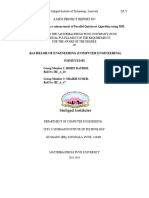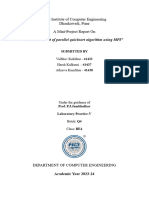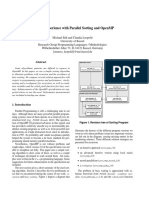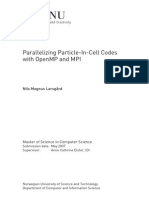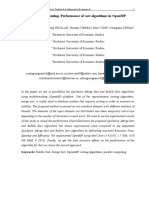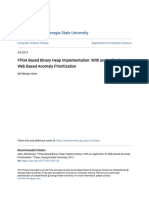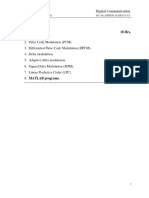0% found this document useful (0 votes)
38 views14 pagesMini Project hpc-1
This project report details the implementation of the Quicksort algorithm using the Open MPI library for parallel computing. It compares sequential and parallel versions of Quicksort, highlighting performance differences based on input size and the number of processes. The study concludes that while sequential Quicksort is faster for smaller inputs, parallel Quicksort performs better with larger datasets, and suggests future improvements to the implementation.
Uploaded by
pratikshathorat0914Copyright
© © All Rights Reserved
We take content rights seriously. If you suspect this is your content, claim it here.
Available Formats
Download as PDF, TXT or read online on Scribd
0% found this document useful (0 votes)
38 views14 pagesMini Project hpc-1
This project report details the implementation of the Quicksort algorithm using the Open MPI library for parallel computing. It compares sequential and parallel versions of Quicksort, highlighting performance differences based on input size and the number of processes. The study concludes that while sequential Quicksort is faster for smaller inputs, parallel Quicksort performs better with larger datasets, and suggests future improvements to the implementation.
Uploaded by
pratikshathorat0914Copyright
© © All Rights Reserved
We take content rights seriously. If you suspect this is your content, claim it here.
Available Formats
Download as PDF, TXT or read online on Scribd
/ 14
